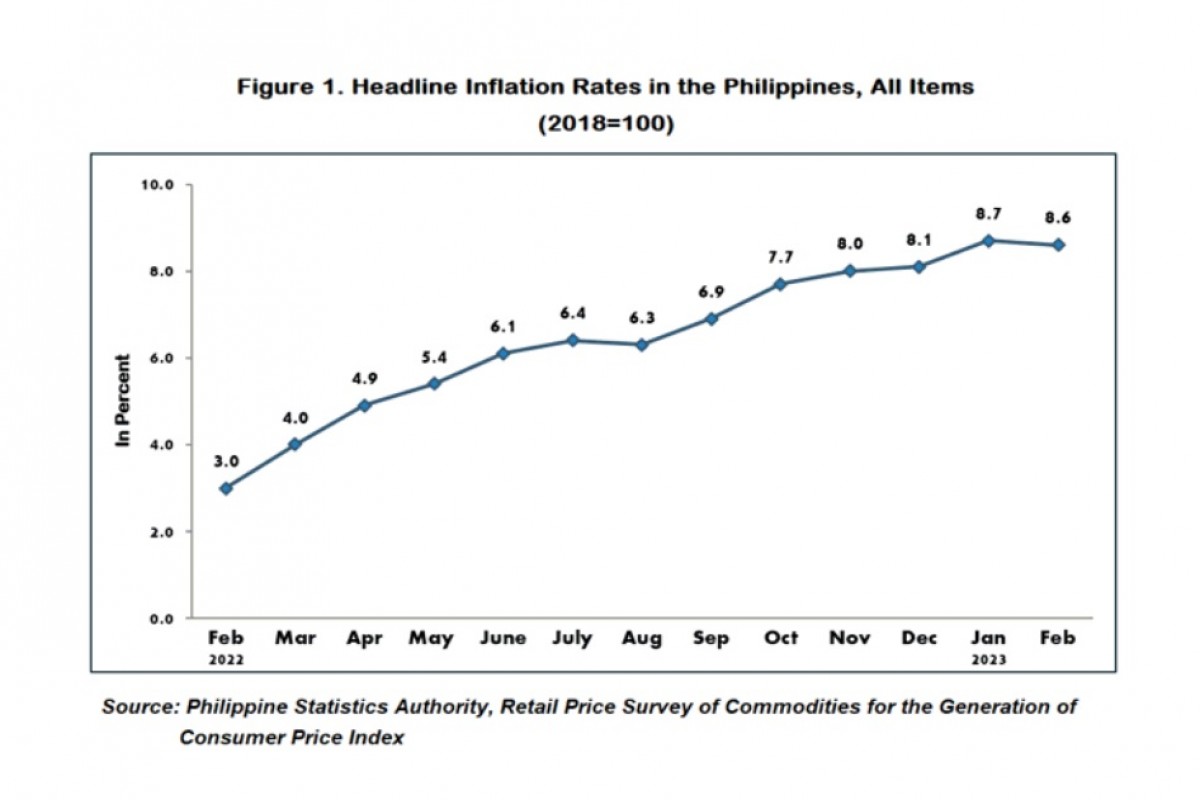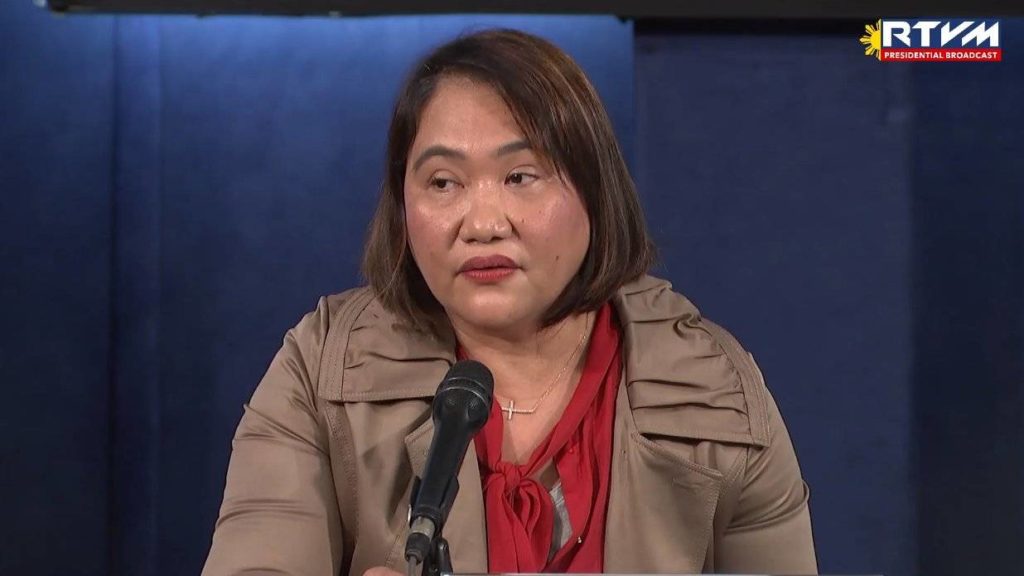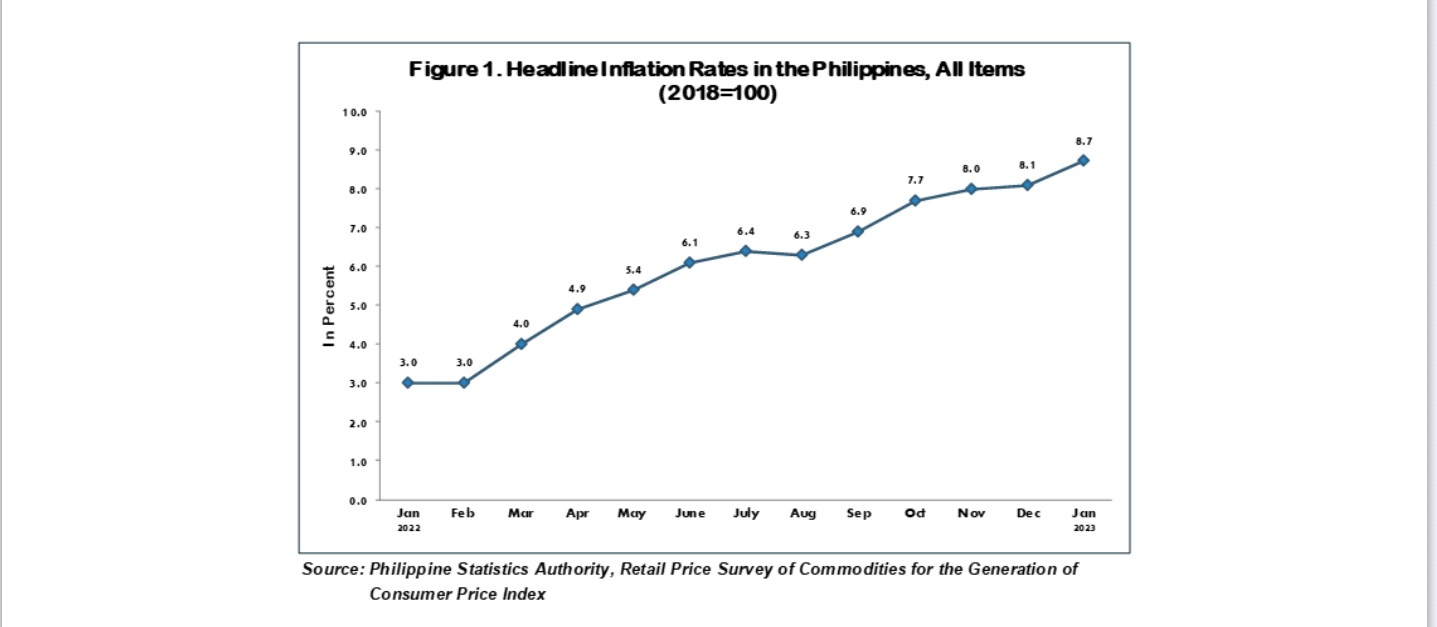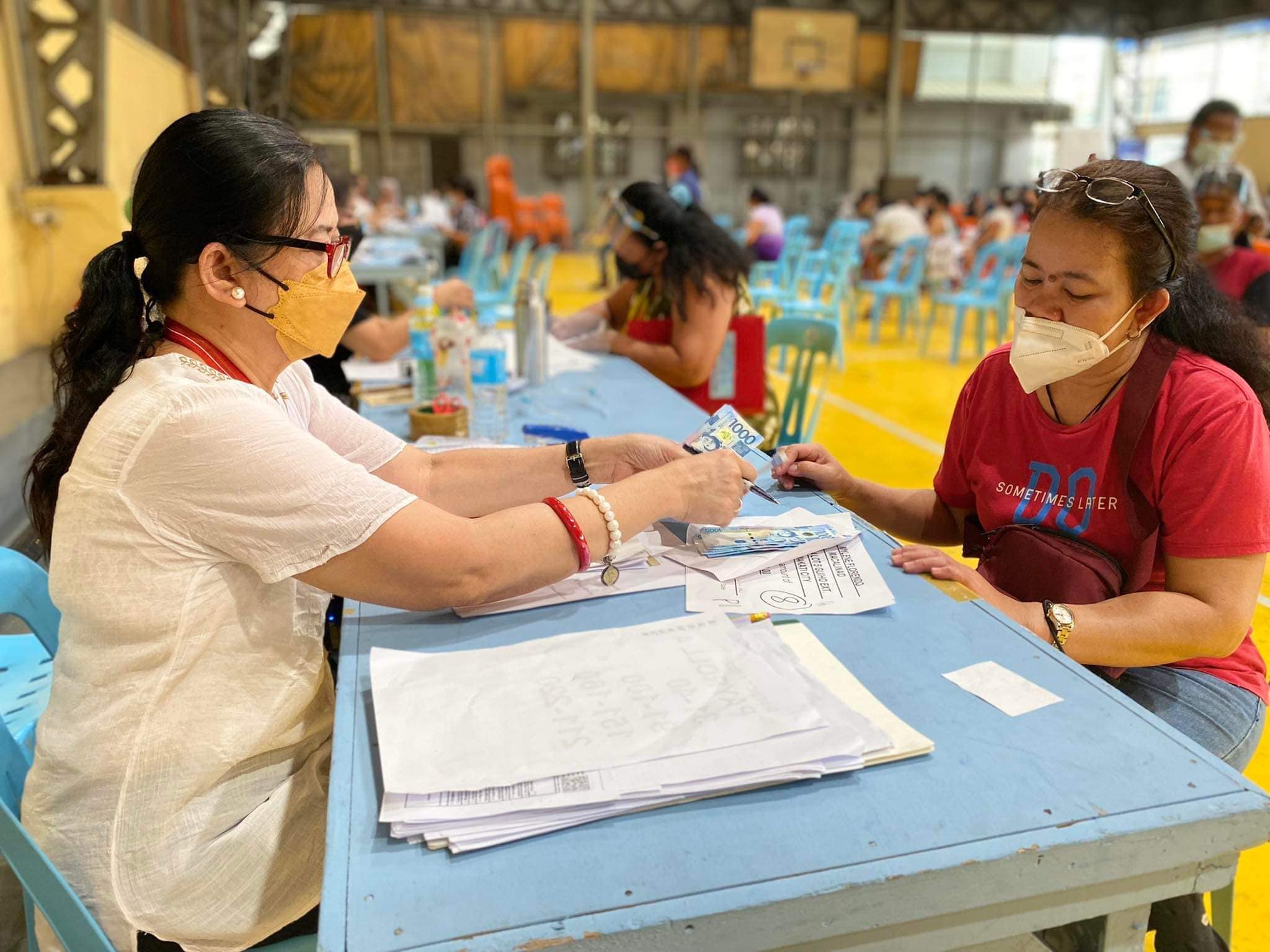QUEZON CITY, (PIA) -- The country’s inflation went down to 8.6 percent in February from 8.7 percent in January. The Marcos administration welcomes this development and said the trend is already on a downward trajectory.
“Ibig sabihin nito, nag-level up na, baka slide pababa, and that we forecast that maybe by around October, it will go down to 4 percent, 2 to 4 percent level na ini-expect ng BSP [Bangko Sentral ng Pilipinas],”Department of Finance (DOF) Secretary Benjamin Diokno said.
According to the Philippine Statistics Authority (PSA), the drop in the inflation can be attributed to slower price increases in the transport commodity group which recorded a 9-percent inflation rate, down from 11.1 percent in January.
Finance Secretary Diokno also reported that the main sources of inflation include food items like vegetables, meat, sugar and fish, which are among the major items with high prices.
On the impact of the dip in inflation rate to ordinary Filipinos, Finance Secretary Diokno emphasizes that our economy is sound and progressing.
“Our economy is sound kahit medyo mataas ang inflation. It remains to be sound, in fact, it grew by 7.6% last year. Hindi masyadong naapektuhan ang consumption,” he said.
Meanwhile, National Economic and Development Authority Secretary Arsenio Balisacan announced that President Ferdinand R. Marcos Jr. has already approved the creation of an Interagency Committee on Inflation and Market Outlook and the Economic Development Group to address poverty and inflation in the country.
“With the creation of the Interagency Committee on Inflation and Market Outlook and the Economic Development Group, the Marcos Administration’s Economic Team is committed to directly address the root causes of high food prices to ensure food security, protect the purchasing power of Filipinos – especially that of the poor and vulnerable sectors,” Secretary Balisacan said.
The interagency committee co-chaired by the National Economic and Development Authority (NEDA) and DOF will serve as an advisory body to the President and the Cabinet on measures to mitigate inflation and in ensuring food and energy security, all the while balancing the interests of local food producers, consumers, and the overall economy.
The committee vice chair will be the Department of Budget and Management (DBM) and compose of the Department of Agriculture (DA), Department of Trade and Industry (DTI), Department of Energy (DOE), Department of Science and Technology (DOST), and Department of the Interior and Local Government (DILG).
The committee’s resource institutions will be The Philippine Statistics Authority (PSA), Bangko Sentral ng Pilipinas (BSP) and the Philippine Competition Commission (PCC).
The current administration is committed to ensure that the country remains on track to meet its poverty reduction targets which include lowering the inflation through addressing food security and energy issues. (ARB, PIA-CPSD)





